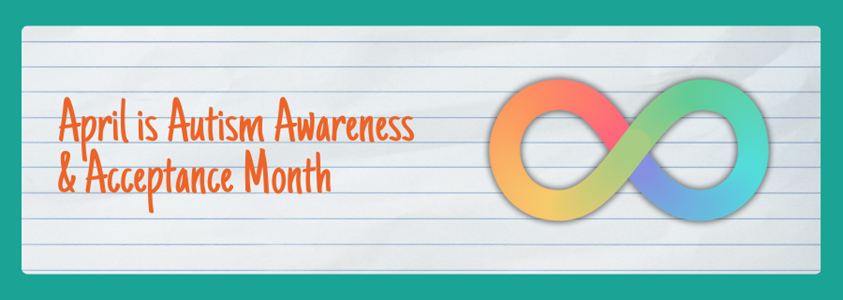
April marks World Autism Awareness/Acceptance Month, emphasizing the significance of embracing and honoring the diverse autistic and neurodiverse members of our school communities. Traditionally, our attention gravitates towards students with autism, as childhood autism has been studied more extensively. However, with the prevalence of autism affecting approximately one in 36 students and a rising number of adults aged 25-34 receiving diagnoses, it's essential to recognize that individuals with autism are not only students but also educators within our schools.
These individuals may be formally diagnosed, self-diagnosed due to limited access to evaluations, or unaware of their neurodiversity. Moreover, women and minority populations often face underdiagnosis or misdiagnosis, highlighting the complexities of supporting neurodiverse staff. Nonetheless, creating an inclusive environment where all staff members feel valued and welcomed is paramount.
While we dedicate efforts to brainstorming accommodations for autistic students, it's equally vital to consider accommodations for staff. Implementing universally designed practices benefits not only neurodiverse individuals but also the entire school community, fostering an environment where everyone can thrive.
Here are five basic accommodations to implement to best support autistic school leaders and educators this April:
-
Provide Information In Advance
It’s difficult for those with autism to adjust to new information on the fly. While this is sometimes unavoidable in the school environment, providing things like agendas, feedback, and clear expectations to process before discussions or changes can substantially minimize information overload and overstimulation for change or the unknown.
-
Give Clear Instructions and Reasoning
One huge struggle autistic adults face is frustration due to a lack of understanding in any given situation. When giving instructions or making systemic changes, ADHD and Autism Activist Ellie Midds suggests using a, “what by when and why” process to disseminate information. This helps set clear expectations of what exactly is wanted or what changes are to be made, why they are needed or happening, and the key point- why do you need this information, or why is this change occurring? This information helps build confidence and security around the tasks or changes you assign.
-
Be Mindful of Planning Time and Breaks
Often, autistic brains need breaks throughout the day to prevent overstimulation and to process what is happening around them. It’s important that when principals and school leaders are creating master schedules to consider their autistic and neurodivergent employees. This could look like evenly spacing out their days with their lunch break and planning time, asking all employees for preferred planning periods and considering them as best as possible, or developing a system to provide sensory breaks for staff if they feel overstimulation happening.
This also means protecting planning time. That time is key to decompressing from the need to be “on” for students and resetting the flight or fight response that can occur when overstimulation and sensory overload are present. Avoid scheduling meetings and creating expectations around planning time, and just let your staff be.
-
Set Clear Evaluation Expectations
It’s great that under today’s teacher and principal evaluation frameworks, detailed rubrics lay out expectations for each level of achievement. However, translating this information from the page into the physical classroom could be a challenge for some autistic staff members, as the difference between conceptualizing to implementing practices and what that looks like inside the classroom can be disconnected. Reviewing rubrics and/or creating a supporting document that helps describe what each criterion looks like, sounds like, and feels like can help translate the sometimes ambiguous evaluation wording making it more accessible to our autistic and neurodiverse staff.
-
Neurodiverse Affirming Attitudes
Many adults are fearful of disclosing their diagnosis to leadership for fear of being ostracized, pitied, or thought of as less than capable; when in reality, our autistic staff members have gifts and strengths that particularly benefit the classroom and school community. From special interests in subject areas to efficient system building and pattern recognition, there is so much our autistic staff members have to offer. We often see positive celebrations over equity, diversity, and inclusion in our school communities that include our autistic students, but autistic adults are overlooked. District and school leadership need to take into account their entire neurodiverse population, including adults, and make their views known that autistic adults are more than welcome in their school communities. Acknowledgment and recognition are key players in creating a space that is neuro-affirming, safe, and supportive for students and staff with autism alike.
The autism spectrum is just that, a spectrum of strengths and differences that appear in each autistic individual uniquely. It’s important to acknowledge that the spectrum includes school leaders and staff, along with our students in general education, and those who we typically think of as more severely impacted.
In the past, April was primarily focused on Autism Awareness. However, as more research is done and an understanding of the spectrum is gained, it’s important to include Autism Acceptance in the mix. Our schools have fantastic educators whose brains are wired differently, allowing them to connect with students and content in inimitable ways. Let’s embrace and celebrate those differences by providing accommodations that will enable our autistic educators the same access and opportunities to flourish as their neurotypical counterparts.
Happy Autism Acceptance Month from the Association of Washington School Principals!